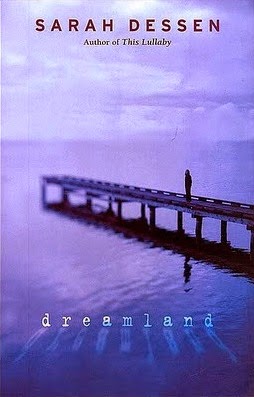So Alexandra Duncan is in the midst of doing a book giveaway
of YA titles that have been criticized for the “slutty” behavior of the female
protagonists. As I am frequently fairly vocal about my feelings on sexuality
and sexual violence, I wanted to take a bit of time to discuss the
intersectionality of slut-shaming and sexual violence. And I would like to discuss it from the perspective of a rape
victim advocate and a mom. I have spoken on this issue multiple times
before but for those who are new to me, welcome to the feminist fun house.
I think that culturally we have a knee-jerk reaction when faced with rape survivors to distance ourselves from them so that we have a reason why that could never be us (or our mothers, sisters, daughters, GFs, etc). And I have also seen way too many rape victims throughout my life in ERs and in the work I do with the Voices and Faces Project to buy into any truth in the notion that rape can be prevented by some action the victim takes.
I think that culturally we have a knee-jerk reaction when faced with rape survivors to distance ourselves from them so that we have a reason why that could never be us (or our mothers, sisters, daughters, GFs, etc). And I have also seen way too many rape victims throughout my life in ERs and in the work I do with the Voices and Faces Project to buy into any truth in the notion that rape can be prevented by some action the victim takes.
When you have seen rape victims as young as 3 and as old as 87, when you have seen men, women, QUILTBAG, all races, rich, poor, etc, you start to realize that there is nothing that makes a person unrapeable. So every time I see things like “no rape panties” or “sassy self-defense classes” or “save your life apps”, there is a part of me that appreciates the well-meaning intentions behind these, but there is also a part of me that wants to point out the fact that these things do not stop rape. Perpetrators are the only ones who stop rape. By NOT RAPING.
Which brings me to the slut-shelf and what happens when we
culturally place judgment on a girl’s sexuality, on a girl’s choices, on her
clothes, on who she dates, on what she drinks, etc. A few months ago, my eleven-year-old came downstairs wearing leggings as pants (meaning leggings with a regular
t-shirt on top so you could see her pantyline). And my husband asked her to go
upstairs and change. And I smarted about this for hours because I worried what
kind of message we just sent to her. And then I realized that I have never once
considered buying my daughter a bikini, even when she begged for one at the age
of 8. And I have been pretty solid on that stance. And the reason for it is
that I knew children who were photographed underwater at the pool by a
pedophile. And I don’t want anyone looking at my daughter like that.
But, in trying to protect her, I have bought into the idea
that shame can be a shield. That if I make her cover up, she will be somehow
safer. And the reality is, she will not. I have told the story of the high
school girl who followed the guy into the boy’s bathroom at school and came out
saying he raped her (which he admitted that she did not consent to sex...so yes, that's rape). And many of the girl's classmates said, “What did she expect when she
followed him in there?” (The answer, btw, is always: SHE EXPECTED NOT TO BE RAPED.)
So that’s the thing about judging and labeling girls “sluts”.
You put their sexuality on trial in a way that justifies sexual violence
against them. This is the very reason rape shield laws came about in the first
place. Rape and sex are not the same thing, and yet some people instinctually judged Daisy Coleman for sneaking out in the middle of the night to meet an older guy.
And it is the perpetuation of that which is most problematic to me with regards
to the slut-shelf. Because it leaves girls unprotected. It makes them an “other”
wherein they are more “rapeable” because of their actions. And it also opens the door into perpetuating notions about purity and value and victim-blaming that ignores the very real onset of sexuality that teenagers are grappling with. Which is really
bullshit, but that's a post for another time.
So I’m going to add to this giveaway as part of TeenLibrarian Toolbox’s Sexual Violence in YA Lit Project with copies of: Jennifer Mathieu's The Truth
About Alice (ARC) and my book Fault Line. (U.S. Residents only please). Just leave a comment in the box below & consider yourself entered. Random.org will do the rest. I'll announce winner on my blog on May 20th.

















